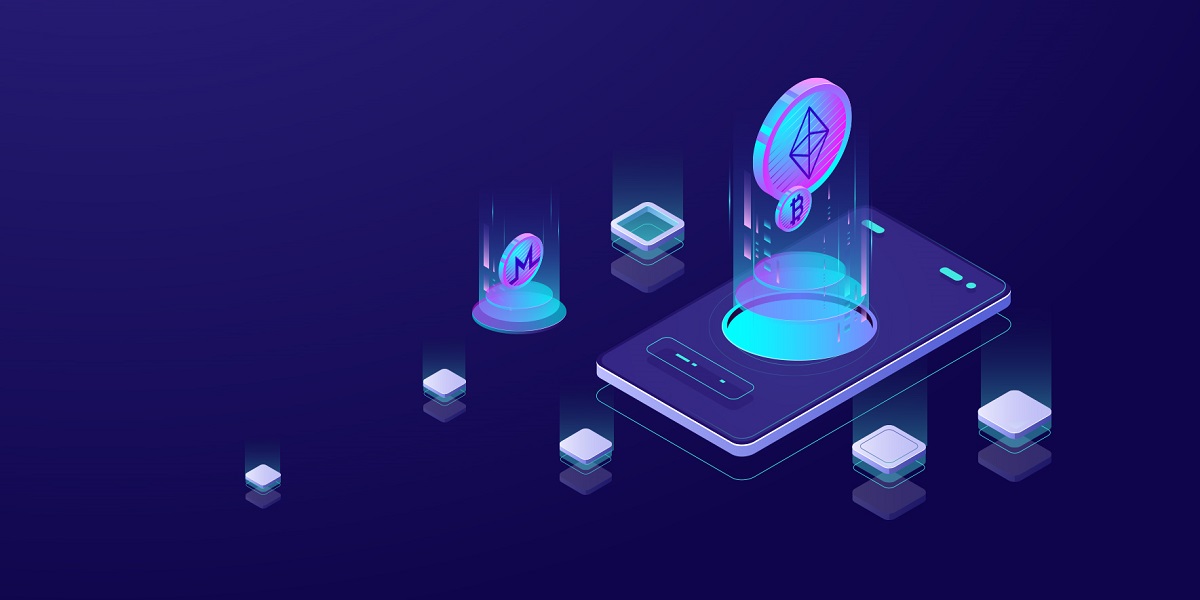
App Development on the Blockchain: A New Gem in the Industry
- By Silvi
- 30-06-2022
- Blockchain
Blockchain technology adoption has accelerated in several sectors since the Bitcoin disruption in the cryptocurrency business. IBM is investing over $200 million in blockchain research because the technology is so promising. 90% of European and American banks have also joined the group. Blockchain is useful in a variety of industries, including government, finance, insurance, personal identity security, gaming, and hundreds more.
It will become technically and operationally scalable, and users will no longer be concerned about portability, interoperability, or scalability.
A widespread misperception regarding blockchain is that it is merely a mechanism for authenticating transactions or exchanging, storing, or selling cryptocurrency. However, the technology is more advanced than what you can see. The blockchain foundation provides opportunities for the creation of new social and economic models around the world. Organizations, businesses, computers, people, bots, and algorithms may all transact and exchange data in real-time, without the need for politics or conflict.
Blockchain technology can be used for public transactions as well as private ledgers for internal record-keeping and transactions. Let's take a look at what blockchain is and what it can do before deciding whether or not you need it.
What is Blockchain, and how does it work?
Blockchain is a mechanism for storing digital data in ledgers, or blocks, in a chain style similar to a lego snake. Each block stores data in a decentralized, safe, and long-term manner. In a blockchain network, all blocks are cryptographically linked together. Nobody can tamper with the data once it's put on the blockchain because it's decentralized, unchangeable, timestamped, and visible.
The major advantage is that blockchain removes any third-party interface from the equation of safety. It produces distributed nodes, which are the essential building blocks of blockchain architecture, which are all connected in a peer-to-peer stack and exchange and synchronize data. No one edits a block or node if they want to transact. If you build your software on the blockchain, you get all of the benefits that come with it.
What is Blockchain application development, and how does it work?
The construction of a blockchain application is similar to that of any other software. In-app development, blockchain is merely another implementation option. To begin, decide what problem you wish to tackle. Is that the one who has to deal with the problem? Is there a ready-to-use solution on the market? How are you going to compete with your rivals? Such inquiries will assist you in laying the groundwork for your business model.
It's worth noting that Blockchain Development Company projects take longer to complete than a typical mobile app. As a result, especially if this is your first time, consult and estimate the time with blockchain developers ahead of time. Let us now take a more in-depth look at Blockchain Development Company.
You can concentrate on blockchain implementation once you have a solid business model.
A platform is decentralized
A decentralized platform entails building your own token system, similar to Bitcoin. In terms of technology, you create a platform that allows others to create their own goods. Bitcoin, Ethereum, and Hyperledger Fabric, among others, are real-world blockchain platforms on which other developers can build.
Create a blockchain platform if you have a system-oriented vision and want to provide a platform for others to build apps and services.
Advantage: You learn how blockchains function and are leveraged by constructing a new blockchain by forking current ones like Bitcoin or Litecoin. You have the opportunity to stand out in the blockchain ecosystem.
Downside: Building a blockchain from the ground up necessitates a thorough understanding of cryptography and peer-to-peer network programming. For a new platform to succeed, you must be diligent with its design, planning, and community-building. The entire process might take hundreds of hours, with the Blockchain Development Company at the top of the list.
Software is decentralized
You construct software on a pre-existing blockchain network, such as Bitcoin, Ethereum, Hyperledger Fabric, or anything similar, in this manner. Your program operates as a network on a well-known decentralized platform. Consider EtherTweet, a blockchain-based Twitter replacement based on the Ethereum blockchain. It's a decentralized microblogging network where only the publisher has the ability to delete a tweet.
When you want to solve a specific problem with a concrete solution, you should create Blockchain software. Regardless of whether you're building an app or an API, you'll need to build it on top of one specific blockchain.
Advantage: You don't require technical skills because the Blockchain platform manages cryptography and peer-to-peer networks automatically. In addition, you can profit from an existing community while developing a tailored solution.
The disadvantage is that when you use an existing platform, you must deal with its limits and faults.
Examples of Blockchain-based Applications
Civil: Journalism, Digital Media, Brooklyn, New York
The news organization has developed a blockchain-based media platform that has decentralized journalism funding and news vetting. It's a secure platform that the whole public owns and runs.
Palo Alto, California-based Doc.ai specializes in healthcare, artificial intelligence, and software. Under an app, the doc.ai platform collects a patient's medical data from medical sources such as pharmacies, doctor's visits, and emergency department visits. The app uses blockchain and machine learning to provide users with predictive health insights based on their medical records and research.
San Francisco, California: Chronicled: Supply Chain, Logistics
To make the supply chain more transparent, the decentralized Chronicled ecosystem used blockchain and IoT devices. It aids the pharmaceutical, commodities, and precious metals industries in tracking and tracing their shipments at every stage of their journey.
FIntech, Boston, Massachusetts (circle)
It's a peer-to-peer money transfer and cryptocurrency investment platform that allows users to send money in many currencies without paying exchange rates.
When should a startup or an existing platform consider developing a blockchain product?
If a technology works for someone else, it doesn't necessarily mean it will work for you. It's possible that you'd be better off without it. What makes you think you'd know that? As a result, we've included some examples in this tutorial to assist you to decide if Blockchain technology is right for you.
How effectively does the dispersed network integrate with your current setup?
You're probably aware that a blockchain is a network of distributed ledgers. So, before you jump in, learn about the benefits and drawbacks of dispersed networks and decide if you're comfortable with them. Furthermore, blockchain deployment is not inexpensive. As a result, you must consider if the benefits outweigh the cost of implementing a blockchain program.
Is it important for you to be transparent?
Transparency may be essential anywhere information is traced. However, if you rely on third-party services, a Blockchain Development Company could be time-consuming. When you wish to allow any stakeholder to authenticate the transactions and data saved or shared by your platform, blockchain is a wonderful fit.
Is there a record in your system that needs to be corrected or removed?
The ledgers on the blockchain are unchangeable. So, if your system allows you to rectify mistakes or delete records, blockchain is not for you.
Do you want to get rid of the middlemen?
If you want your solution to be self-governing and free of centralized authority in order to optimize the work process, you'll require blockchain.
Are you a digital asset manager?
When your company deals in digital assets, blockchain-based software is the way to go. You can create a ledger out of data from real estate properties, for example.
The following are the levels of complexity for blockchain apps:
Payment applications and Smart Contracts Development Apps have a low level of complexity. DApps built on blockchain platforms, hybrid blockchain apps, semi-decentralized apps, and blockchain dApps are all examples of medium complexity.
High level of difficulty: building a blockchain platform from the ground up. Decentralized network in its entirety.
The future of blockchain technology is bright!
Blockchain, like AI, IoT, and ML, has exploded in popularity and appears to be a promising technology for a secure future. The blockchain is based on decentralization, transparency, trust, and security.
Identity systems, global trade, smart contract integration, cryptocurrency marketplaces, decentralized software, and other blockchain solutions are reshaping the business ecosystem. From IT behemoths to government officials and technology enthusiasts, a vast number of people are rallying to promote and fund blockchain. I hope this advice aids you in determining whether or not you require a Blockchain Development Company. If you'd like to learn more about different blockchains, please let us know.
Recent blog

Crafting Eye-Catching Instagram Reels In Just 9 Easy Steps
Social Media | 25-04-2024.png)
Boost Sales and Conversions with Shopify's New AI-Powered Semantic Search
E-commerce | 24-04-2024




